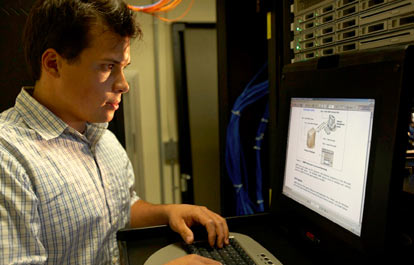

Scientific Lectures //
Title: Bridging the gap between neuroscience and psychiatry: EEG and fMRI studies
Judy Ford, Ph.D. - Professor of Psychiatry; Co-director, Brian Imaging and EEG Lab, University of California- San Francisco
Presented: May 9, 2013
ABSTRACT: The focus of my work for the last 13 years has been on understanding auditory verbal hallucinations, or the experience of hearing voices when no one is talking. In schizophrenia patients, auditory verbal hallucinations are typically unbidden, audible, and negative. Importantly, unlike normal verbal experiences during daydreaming and mind wandering, these experiences also sound like external voices spoken by other people.
In my presentation, I will discuss our progress using EEG and fMRI brain-imaging tools to understand this phenomenology. In the first half of my talk, I will discuss a basic neural mechanism used by every animal on Earth to anticipate, suppress, and tag as “self”, sensations that result from their own actions and thoughts. I will present EEG-based evidence that this mechanism is disrupted in patients with schizophrenia, perhaps explaining why their internal experiences are sometimes perceived as “non-self”. In the second half of my talk, I will present fMRI data aimed at explaining how unbidden thoughts become verbal and penetrate consciousness, and why they typically have negative and threatening content.
BIOGRAPHY: Dr. Judy Ford grew up in Los Alamos, New Mexico, and left for Stanford University in California in 1965. She graduated from Stanford University with a degree in psychology in 1969 and continued studying psychology at UC Berkeley but soon left to join the Neurosciences program at Stanford. She received her PhD in 1975 and stayed on at Stanford in a number of different academic research positions in the Psychiatry Department and in the Neurosciences Program, while trying to balance research with raising children. Her long run at Stanford ended in 2004, when she left for Yale. Dr. Ford worked at Yale until late in 2007, when she decided to move back to the West Coast and join the faculty at UC San Francisco.
Throughout her career, she has used EEG-based methods to understand healthy and psychiatric populations. Recently, has added functional magnetic resonance imaging (fMRI) to her methods toolbox. Judy’s recent work focuses on EEG-based studies of basic neural mechanisms, the dysfunction of which may contribute to the psychotic features of schizophrenia.
To view presentation please click here.

